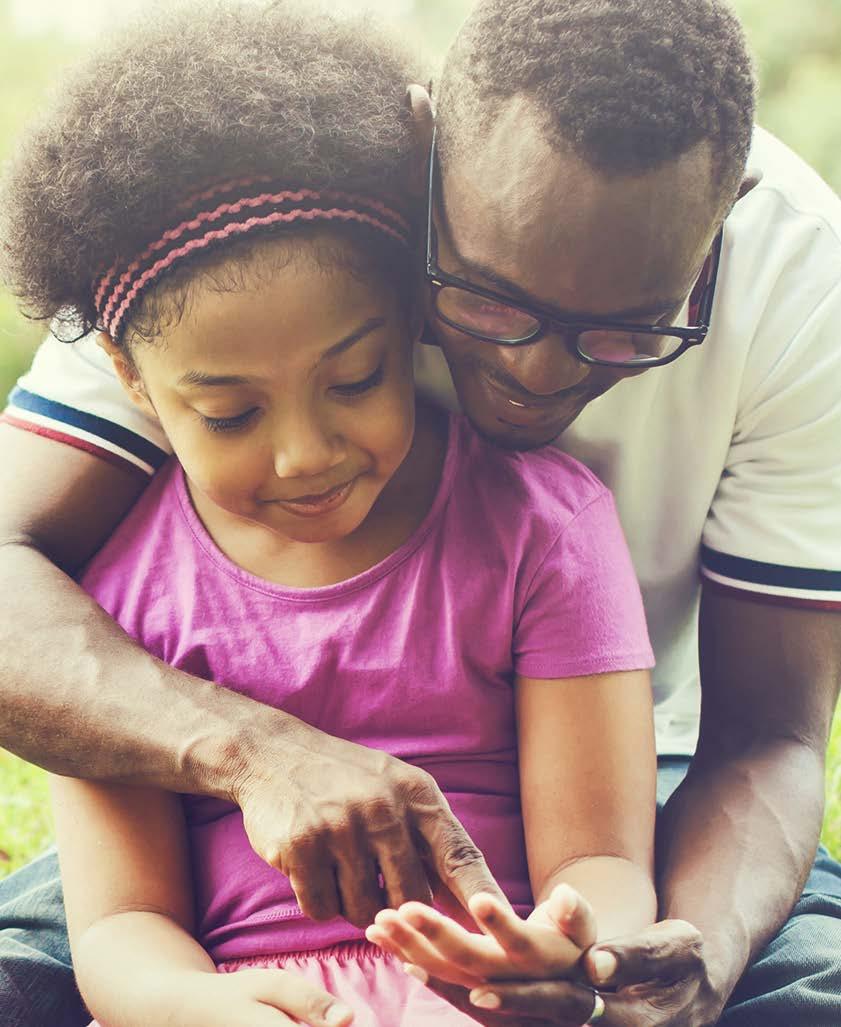
2022 ANNUAL REPORT
Mission
Board of Trustees 2022-23

Richard Battaglia, M.D.
Chima Chionuma, M.D.
Catherine A. Diviney
Andrew Dorn
Angela M. Douglas
Leanne F. Fiscoe
Cheryl Smith Fisher, Chair
Carrie B. Frank, Treasurer
Arthur R. Goshin, M.D., M.P.H (Advisor)
Joanne E. Haefner
LaToya M. Jones
Kevin B. Klotzbach
Elizabeth L. Mauro
Marybeth K. McCall, M.D., Secretary
Brenda W. McDuffie
Sucharita Paul, M.D.
Cynthia Rich
Michael D. Shaffer, C.P.A
Ann Sedore, Vice Chair
Carrie Whitwood
Staff
Marnie Annese
Senior Program Officer
Jordan Bellassai
Program Officer
Coralie Brown Grants Officer
Steve Copps
Office Manager
Roxanne Cuebas
Program Manager
Leslie Daniel
Executive Assistant to the President
Kenneth M. Genewick
Vice President of Programs
Nora OBrien-Suric, PhD President
Diane Oyler, PhD
Executive Vice President
Kerry Jones Waring
Vice President for Communications
To improve the health and health care of the people and communities of western and central New York.
A healthy central and western New York where racial and socioeconomic equity are prioritized so all people can reach their full potential and achieve equitable health outcomes.
Vision
1
To Our Community Partners
This report is a snapshot of the work led by the Health Foundation team and our incredible grantee partners in 2022. Consider it a “zoom out”; but if we could show you the zoom in, what would you see?
You would see hard work happening every day in our community’s nonprofit and advocacy organizations to close the gaps in health care access and build healthier communities. You’d see the challenging, inspiring conversations, shifting power, and learning that happen in our day-to-day interactions with leaders on the front lines of community health.
You’d see a group of moms who have lived through trauma coming together in rooms across Syracuse to support each other in the challenges and joys of parenting.
You’d see the busy team at a community health center making time to see older western New Yorkers not just as patients, but as people, and to find out what matters to them most.
You would see our team, after the challenging years of the pandemic, finally together in a space of pure joy as we announced a landmark gift of $9 million from philanthropist MacKenzie Scott that will help carry our health equity work forward.
You would see a community, still recovering from the impact of the pandemic, reel from one of the worst tragedies we’ve ever experienced on May 14. Then you would see that same community pulling together to take care of each other in the aftermath of the TOPS mass shooting, and to sound the alarm about the connections between that horror and the racist systems that made it possible.
As we continue in our journey toward health equity, we realize more and more that the most important achievements happen in these everyday moments.
Thank you for your partnership every day. Please enjoy this look back at 2022.

Sincerely,
 Nora OBrien-Suric, PhD President Cheryl Smith Fisher Chair, Board of Trustees
Nora OBrien-Suric, PhD President Cheryl Smith Fisher Chair, Board of Trustees


2
building trust through action

LESSONS FROM OUR JOURNEY PURSUING HEALTH EQUITY

In recent years, the Health Foundation team, like many of our philanthropic partners, has had the opportunity to ask ourselves serious, challenging questions about the role we play in advancing equity in the communities we serve. After committing to a new vision of racial and socioeconomic health equity in 2020, we dug in to do the work—and quickly realized that this was a long-term commitment to growth.
Here are just a few of the lessons we’ve learned on this journey—a journey that requires learning and improvement every day.
3
START FROM WITHIN One of the first questions we asked ourselves is: What role do we play in upholding inequitable systems? What do we have the power to change within our own policies and processes to help community organizations and other partners move toward greater equity? We’re thoughtfully updating our practices within this lens—from first encounter with a grantee to final reporting. This learning is ongoing, but we’re grateful to say we continue to see the impact of these changes in our day-to-day interactions with grantee partners.
LISTEN MORE THAN YOU SPEAK The people at the center of health equity issues need to be at the center of finding solutions. Our programs that are driven by human-centered design concepts have illuminated again and again that when we lift up the voices of the people we serve, we learn more than we ever could on our own.
FRAMING IS EVERYTHING How do we talk about the issues we care about? How can we use our platform to influence real change? We’re committed to using our voice to not only point out problems, but identify the institutional drivers of those problems—and then push for solutions on the same system-level scale.
THIS WORK DOESN’T START OR END WITH PHILANTHROPY Grantmakers cannot solve systemic issues like health inequity alone. In fact, there have been many times historically where philanthropy has served as a short-term “bandage” to prolong those issues. When we start to see ourselves as part of a larger system, with dynamic power structures at play, we can start to undo some of that harm.
The most important lesson we’ve learned? It’s going to take all of us—funders, community organizations, policy makers, health care leaders, trusted messengers, and most important, the people we all serve—building trust and working together to dismantle barriers to good health.



working together to improve access
2022 IMPACT SNAPSHOT / With the Health Foundation’s Support
Here are just a few examples of how our grantee partners made a difference this year.
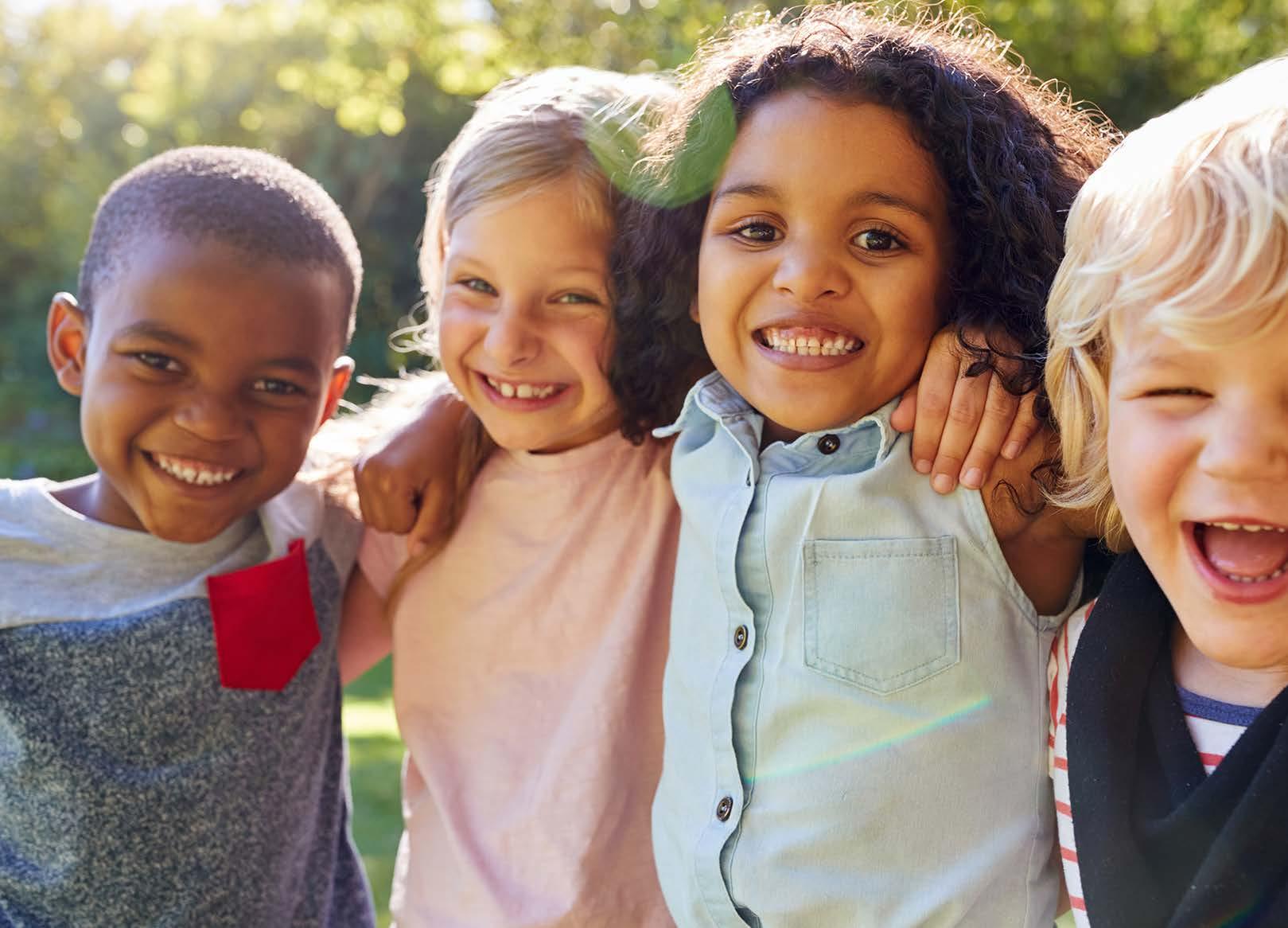
Over 30 new birth doulas trained across Erie, Cayuga, Cortland, and Madison Counties.
Two new Say Yes Buffalo Health Home Care Coordinators connected with 50 families.
411 central New York early childhood staff received social-emotional learning training through PEDALS.
5
2022 OUR WORK BY THE NUMBERS
Learn more about our financial information here.

35.3% 35.1% 22.1% 7.4% Spending by Vision Area $1.8 MILLION CHILDREN 0-5 YEARS $1.8 MILLION COMMUNITY HEALTH CAPACITY $385 $1.1 MILLION THOUSAND OLDER ADULTS OTHER Funds Distributed $3.5 MILLION $1.6 MILLION IN WESTERN NEW YORK IN CENTRAL NEW YORK Total Grant Distribution
$5.1 OVER MILLION 100%
6
2022 AWARDED GRANTS
Allegany Rehabilitation Associates Building Capacity for Financial Management
$27,000
Ardent Solutions
Southern Tier Child Advocacy Center
$450,000
Bison Children’s Scholarship Fund The Bison Fund 2022-2026
$250,000
CCNY
GetREADY: Jamestown Baby Café
$36,775
CCNY Results Based Accountability Technical Assistance
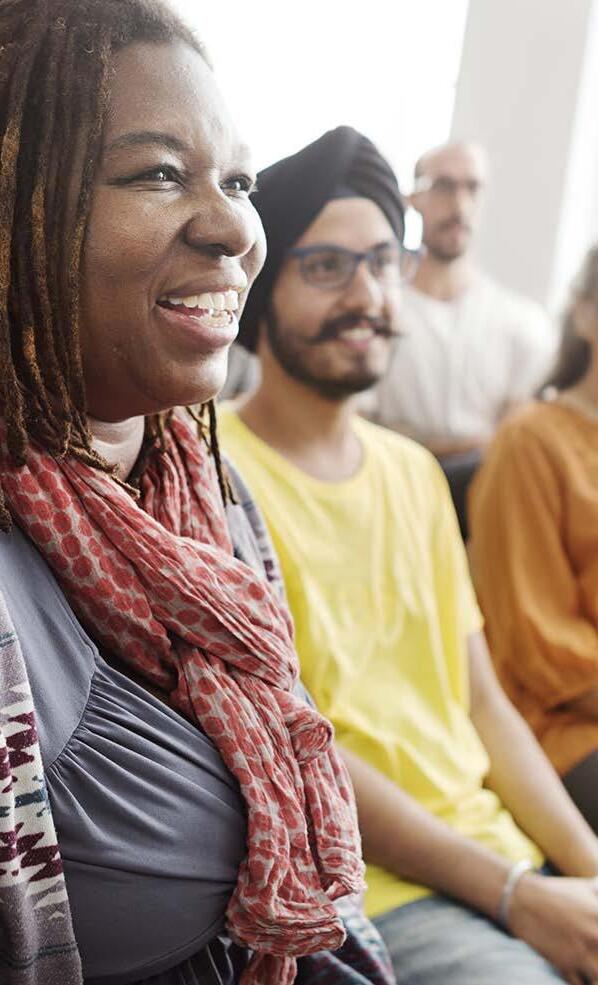
$12,806
Center for Excellence in Health Care Journalism Association for Healthcare Journalists Conference Fellowships 2023
$10,000
CenterState CEO Foundation Pilot Replication
$7,000
Central New York Community Foundation Covid Relief Funds 2022
$50,000
Chautauqua Center
Age-Friendly Health Systems – New York State Action Community Phase 2
$10,000
Chautauqua Region Community Foundation
Jamestown Baby Café Support
$10,000
Community Foundation for Greater Buffalo Moving Forward Together 2022
$52,905
Community Foundation for Greater Buffalo Buffalo Together Community Response Fund
$50,000
Community Health Center of Buffalo
Age-Friendly Health Systems – New York State Action Community Phase 2 –Participant Stipend
$10,000
Community Service Society of New York Reaching the 5%: Outreach and Enrollment Year 2
$325,000
D’Youville College
Achieving Care Parity for People with Disabilities
$31,446
Eastern Niagara Hospital
Geriatric Emergency Department Accreditation Fee
$2,500
ECMC Foundation
Age-Friendly Health Systems – New York State Action Community Phase 2 –Participant Stipend
$10,000
Education Development Center
Community Building in Niagara County to Address Elder Mistreatment
$201,250
Elmcrest Children’s Center Northside Early Education Center Outreach
$44,000
Erie Niagara Area Health Education Center Doula Task Force Support & Doula Advocacy
$7,000
Erie Niagara Area Health Education Center Doula Coordination and Services Program
$602,000
Finger Lakes Health System Agency dba Common Ground Health My Health Story 2.0
$50,000
Genesee Valley Central School Remote Area Medical Clinic
$10,000
Grantmakers in Aging
Changing the Care Conversation Project
$25,000
Grassroots Gardens of Western New York Capacity Building
$35,000
Healthcare Association of New York State Age-Friendly Health Systems – New York State Action Community Phase 2
$89,411
Healthy Community Alliance
Chautauqua Strong Starts – Grant Writing Support
$10,000
Holy Cross Head Start
Cavity Free Kids Continuation
$3,000
progress
Inclusive Alliance IPA
lnclusive Alliance IPA Network Planning and Development
$50,000
Independent Health Foundation
Growing Up Strong: WNY HealthySteps
$225,000
Institute for Nonprofit Practice
WNY Core Certificate Program
$50,000
Integrated Community Alternatives Network
Healthy Connections from the Start Renewal
$81,376
JSI Research and Training Institute Western New York Primary Care Need and Health System Capacity Assessment
$20,000
JSI Research and Training Institute WNY Safety Net Assessment
$130,000
Lakeshore Connections
Help Me Grow WNY Public Relations
$19,468
Lakeshore Connections
PEDALS Evaluation
$50,000
Leukemia and Lymphoma Society
Leukemia & Lymphoma Society Local Travel Assistance Initiative
$10,000
Lifespan of Greater Rochester NYSCRC AmeriCorps Volunteer Respite Model
$150,000
Local Initiatives Support Corporation
The Soil Fund
$15,000
Lutheran Social Services of Upstate New York
PACE Feasibility Assessment
$10,000
Mercy Hospital Foundation
Age-Friendly Health Systems – New York State Action Community Phase 2 –Participant Stipend
$10,000
Mercy Hospital Foundation
Geriatric Emergency Department
Accreditation Fee
$2,500
Mid Erie Mental Health Services dba
Endeavor Health Services
Mental Health Emergency Response
$50,000
National Compassion Fund Buffalo 5/14 Survivors Fund
$25,000
Native American Community Services
Native American Community Services Capacity Building
$50,000
New York Academy of Medicine Health and Age Across All Policies Evaluation
$22,500
New York StateWide Senior Action Council WNY Health Hubs
$60,000
NY Funders Alliance Catchafire
$47,250
NY Funders Alliance Impact HQ Bridge Funding
$19,361
Orleans Community Health Foundation Breaking Down Heath Provider Silos in Orleans/Niagara Counties
$4,000
Orleans County Cornell Cooperative Extension Elderberries
$4,704
P2 Collaborative of Western New York Advancing DEI in the Fellows Action Network
$10,000
P2 Collaborative of Western New York Fellows Action Network 2022-2024
$212,740
Physicians for a National Health Program NY Metro Chapter, I Upstate New York Health Equity Forum
$30,000
Police Athletic League of Buffalo Farm to Fork WBLK Sponsorship
$12,300
Refugee & Immigrant Self-Empowerment RISE: WNY Care Managers
$92,784
Rural Outreach Center Rural Health Disparities Microgrant: Rural Outreach Center Survey
$2,300
Say Yes Buffalo Scholarship Say Yes Buffalo Early Childhood Health Home Care Coordination Expansion
$164,475
Schuyler Center for Analysis and Advocacy
1115 Waiver Event Speaker Support
$5,000
Solutions Journalism Network Finding Solutions: Connecting with Elusive Caregivers – Year 2
$24,000
Southern Tier Health Care System Safe Kids Southern Tier New York Coalition Continuation
$100,000
The Upstate Foundation
Age-Friendly Health Systems – New York State Action Community Phase 2 –Participant Stipend
$10,000
United Way of Central New York Help Me Grow Onondaga QI & Data Analytics for Systems Change
$200,000
Western New York Clinical Information Exchange
FAN 2022-2024
$107,140
Western New York Integrated Care Collaborative Capacity Building
$25,000
Western New York Public Health Alliance WNY Public Health Alliance Trauma Symposium
$4,000
YWCA Jamestown Stand Against Racism Summit
$5,000
progress 8
from surviving to thriving – together
Trauma-informed program in Onondaga County helps parents and kids grow.
A child’s first years have an impact on the rest of their life, but early childhood is not an even playing field due to systemic inequity in child care, health care access, economic opportunity, and more.
Since 2015, the Early Childhood Alliance of Onondaga County has been working toward a vision of all children in Onondaga County having what they need to be healthy, thriving, and ready to succeed in school and in life.
The Health Foundation partners with ECA on several initiatives, including Help Me Grow, which provides referrals to community resources, services, and education on child development and completes developmental screenings, referring to Early Intervention when needed; and Talking is Teaching, supporting parents’ efforts to boost their children’s brain and vocabulary development. A 2019 Health Foundationfunded report from ECA and partners Child Care

Solutions contributed to County Executive Ryan McMahon announcing a wide-ranging investment to reduce poverty in the county, including $1.5 million to ECA.
In 2022, more than 1,600 children in central New York were served by Help Me Grow with the Health Foundation’s support.
“One thing ECA does very well, and that we are continuing to strengthen, is bringing parent voice into these efforts,” said ECA Executive Director Bethany Creaser. “We don’t create programs and tell parents what they need; parents are our partners in finding tools that help children thrive.”
9
In that spirit, ECA developed Thriving Not Just Surviving through Co-Creating Well-Being, the Health Foundation’s program to strengthen trauma-informed care efforts at the community level. This peer-to-peer support program is facilitated in community settings around Onondaga County to make it accessible for mothers of children ages 0-5 years with a history of traumatic experiences such as drug or alcohol addiction or domestic abuse.
“This was an opportunity for parents to develop their own programming. We wanted to know what parents were experiencing so we could work together on
Health Foundation
Goal
Communities are equipped to deliver trauma-informed practices and invested in preventing trauma.
high-level, systemic changes,” said Syeisha Byrd, ECA’s Director of Family Engagement.
“When we stepped back and let the parents take the lead, it really took off on its own,” said Bethany. Thriving Not Just Surviving includes eight weeks of weekly support sessions. Participants work together to create topics for discussion, such as household budgeting, dealing with anxiety and stress, and a goalsetting session to identify areas for growth.

The program helps parents build social capital, a sense of belonging, and a trusted network. Current and former participants have become a community that stays in touch, learns from each other, and advocates for other parents.
Gabbie, a stay-at-home parent of two small children, appreciates the honest connections she’s found in the program. A session on setting personal boundaries was particularly helpful for her, and the group helped her achieve her goal of quitting smoking.
“It made such a difference to hear the others say they were proud of me for not smoking—it definitely gave me the stamina to keep going,” she said.
Participants are encouraged and supported to take on new challenges beyond the workshops. Two former participants are now on ECA’s Parent Advisory Council, and another traveled to California for a 2023
conference with the Center for the Study of Social Policy’s Parent Leader Network. One mom contributes to statewide efforts for Prevent Child Abuse New York.
Gabbie now serves as a co-facilitator for a Thriving Not Just Surviving group. She was invited to the local Head Start program’s Policy Council, and has been offered a leadership role with that group as well.
“I’m finally around people who see my true value and worth,” she said.
Learn more about ECA here.
Image, Left: Jade, a member of Thriving Not Just Surviving, shows off the sweet potato pie she made with the group to celebrate Thanksgiving. Image, Right: Moms participating in the support group together.

10
“what matters” comes first
For Community Health Center of Buffalo, being age-friendly means seeing patients for who they are.
See the whole person. That’s the philosophy of the Age-Friendly Geriatric Services Program at Community Health Center of Buffalo (CHCB), a Federally Qualified Health Center serving people in under resourced communities in Erie and Niagara Counties.

The program, with the direction of Arvela Heider, MD; Shahla Ahmad, MD; and Ann-Marie John, PhD, MSN, uses an approach to care that addresses patients’ complex needs by prioritizing their humanity, dignity, and individual circumstances through the Age-Friendly Health Systems framework.
In 2022, with support from the Health Foundation, CHCB participated in the Age-Friendly Health Systems initiative led by the Healthcare Association of New York State. Age-Friendly Health Systems is a model developed by The John A. Hartford Foundation that uses a set of four evidence-based elements to organize the care of
older adults, known as the “4Ms”: What Matters, Medication, Mentation, and Mobility.
The CHCB team added their own fifth “M” –multi-complexity.
“Multi-complexity means that we are addressing the comorbidities and chronic disease that we see in the patients we serve—anything that requires specialized care,” said Dr. John. “Including multicomplexity helps us incorporate a whole-patient prevention and wellness approach that addresses those needs in collaboration with their primary care physician.”
connection
11
For the CHCB team, the “what matters” question is an opportunity to build a personalized care plan together for the greatest outcome, as determined by the patient with support from their doctor.
Dr. Ahmad said this approach builds trust with patients so they can let their guard down and be an active decision-maker in their care plan. “We look at what’s happening in the patient’s life when they walk out our door. I tell them right away—no type of care is going to be forced on you. We’re going to make these decisions together.”
The team frequently sees the impact of this approach. Dr. Ahmad worked with an 89-year-old patient with squamous cell carcinoma who had undergone intense treatment that left her exhausted. When her cancer returned, she was faced with the decision of trying another round of chemotherapy.

“We had a long conversation about what really mattered to her and her family. She said she was tired from spending so much time in the hospital, and that being at home with her family was what mattered to her,” shared Dr. Ahmad. “That conversation helped her make a treatment decision that would allow her to spend the time she had at home with her loved ones, in a way that provided her dignity and a high quality of life.”
Since May 2022, more than 170 older adult patients have been cared for by the Age-Friendly Geriatric Services program, and surveys show high satisfaction from patients.
The whole-person approach also helps address common barriers to good health driven by social determinants such as transportation or food insecurity.
“Because we’re part of the community, we’re really well-networked with the support services our patients might need,” said Dr. Heider. “We don’t operate in an isolated way.”
“In a purely medical model, you would focus only on the disease. When you reframe in this way, you see the whole person and what’s important to them,” added Dr. John. “Every patient we see leaves their appointment feeling more informed, and that helps them feel more in control.”
BRINGING AGE-FRIENDLY CARE INTO THE COMMUNITY
In 2022, the Health Foundation launched AgeFriendly: Go Local, a funding initiative to help grassroots organizations and neighborhoods become age-friendly. Community Health Center of Buffalo is building on their age-friendly work through Go Local by developing community resource hubs in Buffalo, Niagara Falls, and Lockport to bring services and resources like mobile health care, healthy food options, wellness classes, and more right to the people they hope to reach.
Sixteen health systems from across western and central New York are participating in AFHS with the Health Foundation’s support, including two Federally Qualified Health Centers (FQHCs).
connection
Health Foundation Goal Communities and health systems are working collaboratively to become age-friendly.
12
Image, Above: Dr. Ahmad with a patient of CHCB.
Health Foundation
Goal Community-based organizations are financially sustainable, strong, and working collaboratively with health and other systems.
RISE breaks down barriers to bring trusted care management to New Americans.

Most of the people served by RISE (Refugee and Immigrant Self-Empowerment), a nonprofit organization founded in Syracuse and now serving Buffalo, have crossed the world to find a new home in our region. Finding health care is not always easy for refugees and immigrants who are facing language barriers or the complexities of American health insurance.


That’s why RISE’s care managers have created a community-focused, culturally competent approach that helps clients access the services they need. A 2022 grant from the Health Foundation helped RISE replicate their successful Syracuse care management program in Buffalo.

RISE assists more than 1,800 people every year through multiple direct services including bilingual case management; Medicaid care management and connection to health insurance; English as a second language instruction; and much more. RISE is run by refugees, for refugees, with an executive team comprising 75 percent former refugees and immigrants, and a board made up of 70 percent former refugees and immigrants.
RISE care managers work with clients who are Medicaid-enrolled and have chronic health conditions to develop a personalized care plan and connect them to primary care and specialized providers. Care managers empower clients by partnering with them to make and attend appointments, coordinate with their doctors, and monitor the progress of their care plans.
“WHATEVER THEY NEED, THEY CAN CALL US”
RISE care managers helping their clients access the services they need.
But the first step is the most important, according to Zeeshan James, Director of Care Management at RISE— building a trusted connection with the community.

“We know people may feel hesitant to come to our office to seek help, so our care managers are out in the community, building relationships,” said Zeeshan. “We’re visiting our neighborhood places of worship or community centers. This is not a cold call; it’s targeted community outreach.”
The care management teams in Buffalo and Syracuse speak a combined 22 languages in addition to English.
This context helps them more effectively serve Buffalo’s vibrant and growing refugee population, most of whom are Afghan, Karen, Burmese, Congolese, Somali, Rohingya, and Burundi.
“Our care managers are from the same community as our clients, offering credibility and understanding to help them overcome the barriers that prevent them from receiving care,” said Zeeshan.
“Our location in downtown Buffalo is a complement to the great work of many other refugee-serving organizations working here,” said Fran Bisceglia, Director of Development at RISE. “Often, people will come to us for a specific issue, but then other needs arise. This community network enables us to put them in touch with other local resources that can help them.”
The RISE team sees the impact of their work every day.
“We had a client who had not been to the doctor in about five years, not once in the U.S.,” said Zeeshan. “We built that trusted relationship with him and helped him find a primary care doctor. That was when he learned he had cancer. But—the good news is the cancer is early stage and he is receiving treatment and doing well. We’re very glad he went to the doctor when he did.”
Learn more about RISE’s care management program here.
14
an oasis on lake erie for family caregivers
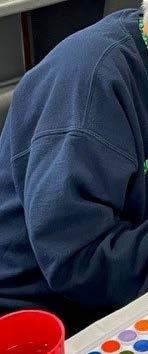

Exhale’s creative problem-solving approach spurs innovation for respite programs.
Health Foundation Goal
Family caregivers of older adults are valued and supported.
Located south of Buffalo on the shores of Lake Erie, Cradle Beach is known as the longtime home of an enriching summer camp experience for children, including those with or without disabilities and from low-income communities. Now, a new collaboration through Exhale, the Family Caregiver Initiative—a partnership of the Ralph C. Wilson, Jr. Foundation and the Health Foundation— is giving family caregivers and their older adult loved ones the chance to find support and enjoy this beautiful setting, too.
innovation 15
Pathways for Caregivers, a program developed through Exhale by Cradle Beach, Harmonia Collaborative Care, and older adult care consultant Lisa Rood, offers family caregivers monthly, four-hour respite sessions at Cradle Beach’s campus.
Caregivers can choose to either stay at Cradle Beach and enjoy a variety of activities and resources, or use that time for themselves while their family member takes part in an activity or receives individual care.
“This is an opportunity for caregivers to step away from stress and find what they need in a calm, scenic setting; an oasis,” said Ann-Marie Orlowski, Chief Executive Officer of Cradle Beach.
Activities offered by Pathways for Caregivers are developed with the input of caregivers and their loved ones, an approach that builds on the person-centered concept of creative problem-solving that is central to Exhale. Creative problem-solving uses innovation and collaboration to find and plan solutions to problems.
During focus groups as part of the program’s development, Ann-Marie noted that many caregivers said they simply wanted to be in nature or take a walk on the beach, making Cradle Beach’s campus an ideal location.

“This setting gives us the chance to offer so many options for activities—walking along the paved path, visiting the beach, building bird houses together,” said Lisa. “Our activities for both the caregiver and their loved one are fun and enriching.”
During respite program hours, a caregiver support group is offered by Harmonia’s clinical staff. Caregiver education, resources, and support services are also provided by the Pathways team.
“Caregivers often don’t have time or energy to seek out all the supportive resources that are available to them, or they might not even be aware of them,” said Jennifer Gunia, Director of Senior Services for Harmonia. “This gives us the chance to connect people to those services and benefits to help improve their lives.”
Pathways for Caregivers was one of 12 funded Exhale projects in 2022. Exhale is a partnership of the Ralph C. Wilson, Jr. Foundation, Health Foundation for Western and Central New York, and the Ann Arbor Area Community Foundation to help bring innovative respite opportunities to family caregivers in western New York and southeast Michigan.
As part of Exhale, organizations participated in a series of virtual workshops and received free training in creative problem-solving and project management facilitated by The Philanthropic Institute and Teresa Lawrence. Exhale’s 12 funded projects for 2022 involve a total of 58 partner organizations.
Over 1,260 caregivers have been reached through Exhale since it was launched.
The Pathways for Caregivers team shared that Exhale provided benefits on many levels, helping them focus their project into achievable goals and connecting them with other caregiver resources across the region. But the opportunity to be creative with their partners and prioritize the real-life needs of caregivers is what sets Exhale apart.
“Historically, when you’re receiving funding, the funder sets the parameters of what you need to do. Exhale really flipped that script,” said Ann-Marie, who said interest in Pathways for Caregivers is growing quickly and she anticipates up to 50 participants per respite session. “It gave us the resources, time, and opportunity to work with other leaders to create solutions. This is the first time I’ve been part of something with that approach.”
Read more about Exhale here.
Family caregivers and loved ones enjoy Pathways activities.

innovation 16
Health Foundation
Goal
Equitable
A HEAD START TO KEEP PEOPLE COVERED
“All hands on deck” collaboration builds on success of Health Foundation project.
When COVID-19 arrived in the U.S. in 2020, the federal government declared a Public Health Emergency (PHE) to address the catastrophic impact of the pandemic.

Part of that declaration was waiving the annual renewal requirement for people in public health insurance programs. If you were enrolled, you stayed enrolled. As pandemic-related unemployment soared and millions of people needed public health coverage, this was an important change.
But as the country’s response to the pandemic evolved, public officials and advocates knew these beneficial provisions would eventually end. By spring 2023, the federal government set an end date for the provision that waived the annual renewal process.
In New York alone, nearly 9 million people across the state could lose their coverage if they don’t actively renew it.
Fortunately, community advocates had a head start on reaching those people. Through the Health Foundation for Western & Central New York’s Reaching the Five Percent program, or R5, advocacy organization Community Service Society of New York (CSSNY) had already built a strong network of community organizations with proven success in helping people enroll in health insurance.
care and insurance are available and accessible for all people.
17
R5 was based on the findings of a 2019 report by the same name that investigated why New York was home to nearly one million people who were eligible for coverage but uninsured.
From March through May 2022, R5 partners reached 1,128,075 individuals with information about health coverage.
In anticipation of the end of the PHE, a collaboration called Keep New York Covered was formed that built on the strengths and infrastructure of R5. This consortium of funders from across the state, in partnership with CSSNY, complements the state-funded navigator program and extensive outreach led by the New York State Department of Health to address the end of the PHE.
For Elisabeth Benjamin, Vice President of Health Initiatives at CSSNY, this initiative and R5 demonstrate the power of cultivating community relationships in improving health coverage rates and outcomes.
“We knew there were a lot of people who would need to be reached with this information, and those people have specific needs—they may have disabilities, they may not speak English as a primary language. It was important to rely on the trusted expertise of the organizations who serve them,” said Elisabeth. “This was an opportunity to take what we had learned from R5 and work out a solution to this problem together. R5 showed that this model is helpful both in the long run but could also yield great results in this watershed moment when so many people need to be engaged in so little time.”
“Our partners at the Department of Health knew that this was an ‘all hands on deck’ moment, and that the conditions were right to collaborate,” said Avital Havusha, Vice President for Programs at the New York Health Foundation.

By the end of 2022, seven funders had signed on to contribute a cumulative $1.4 million to support Keep New York Covered: New York Health Foundation;
United Hospital Fund; New York Community Trust; Greater Rochester Health Foundation; Altman Foundation; Health Foundation for Western and Central New York; and Mother Cabrini Health Foundation.
In December 2022, CSSNY released a call for proposals from community organizations to lead this work in the regions they served. The RFP resulted in a significant response of 46 applications. Twenty-eight projects were selected and are employing a range of tested strategies such as texts and phone calls, door-to-door outreach, presentations, social media and videos, and radio and TV announcements. See the list of funded organizations here.
“Having high rates of health insurance is an anchor of healthy communities,” said Avital. “The United States used the challenging moment of the pandemic to help get more people covered. This is an opportunity to make sure we don’t lose the gains we’ve made.”
ACR Health in the community helping people get covered.
18
Help spread the word to your community — share New York State’s toolkit on keeping people covered.
A SPECIAL THANK YOU
In June 2023, Cheryl Smith Fisher retired as chair of the Health Foundation’s Board of Trustees. Cheryl joined the board in 2014 and became chair in 2019, and her leadership, vision, and compassion have been an asset to the Health Foundation’s work. Cheryl was a strong advocate for our vision of racial and socioeconomic health equity, and she ably led our organization through the challenges of the COVID-19 pandemic with a continued dedication to our mission and unwavering support for her fellow trustees, our staff, and our grantee partners. Thank you, Cheryl, for your contributions to health equity in our community!
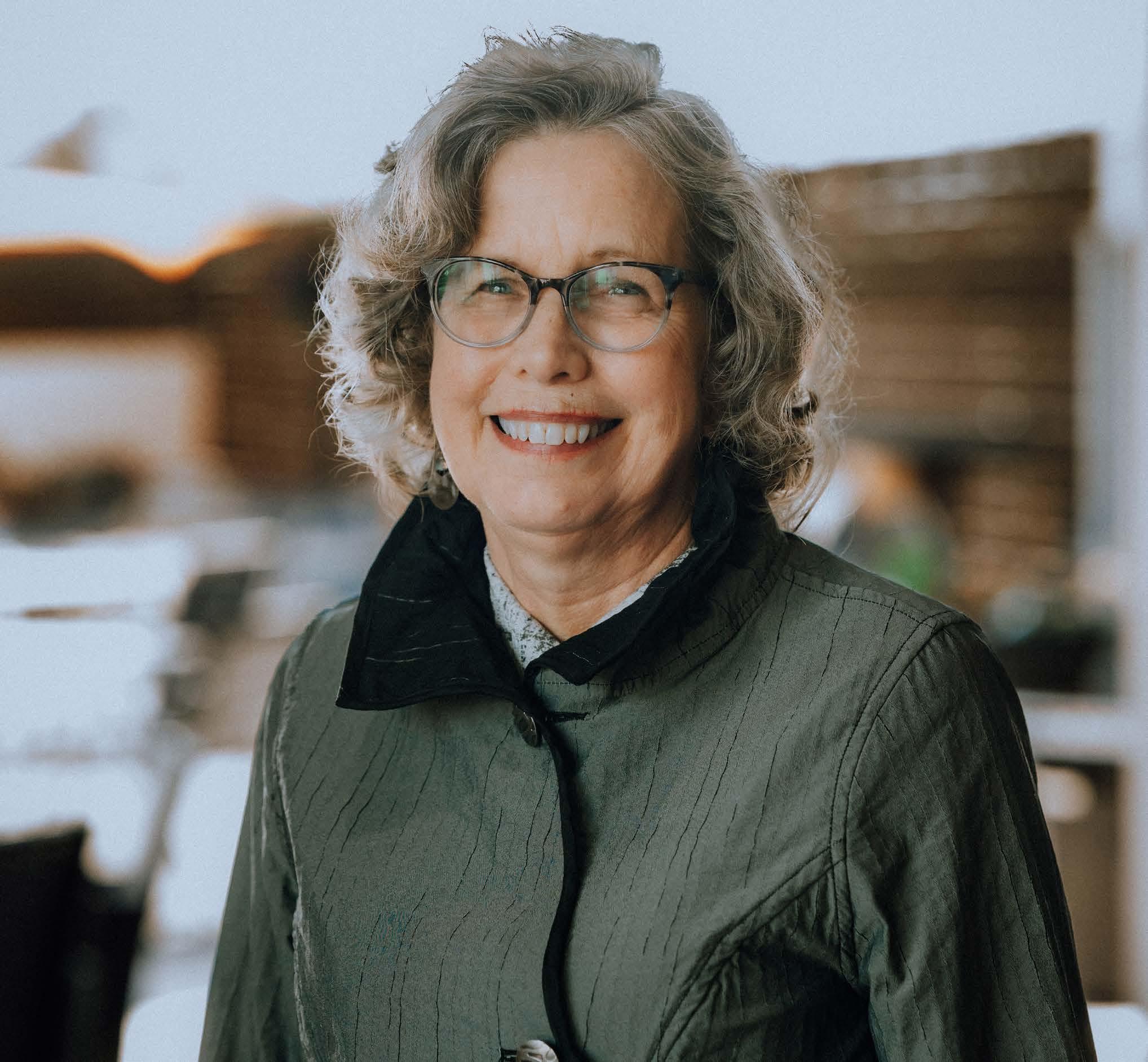
hfwcny.org 726 Exchange Street | Suite 518 | Buffalo, NY 14210 431 E. Fayette Street | Suite 250 | Syracuse, NY 13202




 Nora OBrien-Suric, PhD President Cheryl Smith Fisher Chair, Board of Trustees
Nora OBrien-Suric, PhD President Cheryl Smith Fisher Chair, Board of Trustees


























